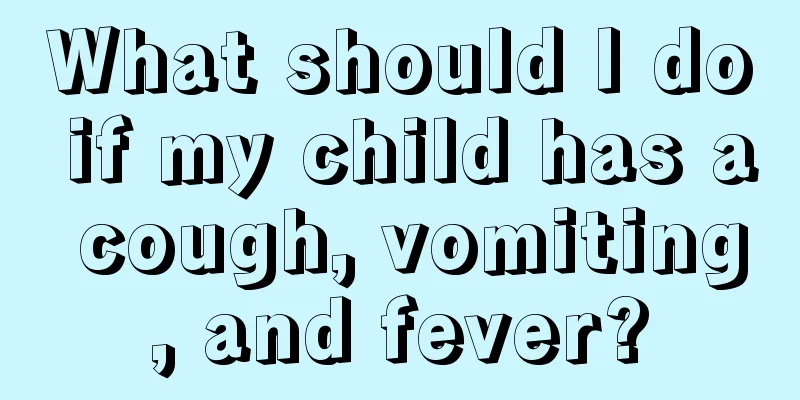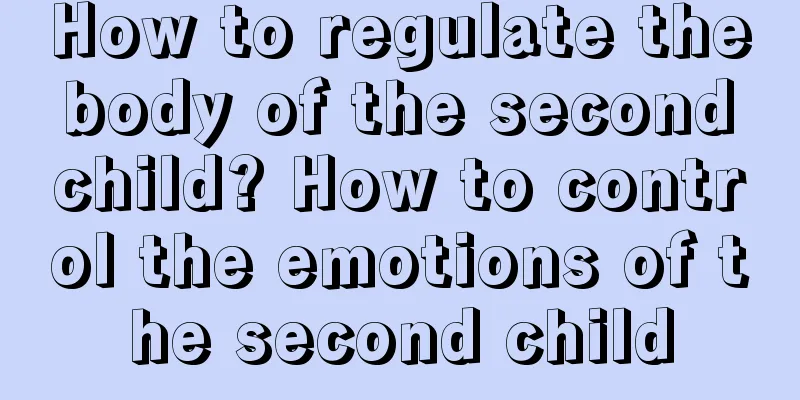Newborns are startled when they sleep. Reasons why newborns don't sleep well

|
Newborns spend most of the day sleeping. Many mothers will find that their babies are restless and startled when sleeping. At this time, some mothers will be very worried. So here we will learn about why newborns startle when sleeping? What are the reasons for newborns' poor sleep? Newborn baby startled while sleepingNewborn babies are always startled when they sleep. This is a normal physiological phenomenon, clinically called the startle reflex. The startle reflex is a very important innate primitive reflex in the early stage of infancy, which helps infants defend against external attacks. The typical manifestation of the startle reflex during sleep is startling, which will gradually disappear in about three or four months. If this happens to the baby when sleeping, as long as the mother gently presses any part of the baby's body, the baby will calm down. If the baby's startle is more serious, it is recommended that mothers buy a special baby sleeping bag or quilt, and gently wrap the baby to sleep (avoid wrapping too tightly), so that the baby will have enough sense of security when sleeping, and the number of startles will be reduced. Reasons why newborns have poor sleep1. There are many reasons why newborns don’t sleep well. When babies have to urinate or defecate at night, they will cry non-stop, and it is difficult to fall asleep, let alone the quality of sleep. Babies have small stomach capacity and eat more frequently. If they feel hungry in the middle of the night, they will naturally cry non-stop. 2. In addition, lack of security is also one of the important reasons why babies wake up easily. The mother's womb is closed, safe and warm for the baby in the fetal period. After the baby is born, he goes to a new environment and sees different people and things every day. All of these are unfamiliar to the baby, and he will have more or less fear. If your baby does not sleep well, it is very likely caused by an illness. The pain caused by some diseases makes it impossible for the child to sleep well. Therefore, when the child has trouble sleeping, you must carefully analyze the child's situation. If the child simply cannot sleep, you can rest assured that the child will naturally fall asleep when he is tired from playing. However, if other diseases cause the child to suffer from insomnia, timely treatment is required. When does the baby's startle response disappear?The startle reaction is medically known as the neonatal grasping reaction. Normally, it should disappear at 3 months, and can be delayed to 4 months at the latest. If the startle reaction still does not disappear at 4 months, it means that the baby's brain development is slow or there is a possibility of brain damage. If the baby's startle reaction disappears with a delay, it will affect the baby's holding objects, turning over, etc., so it is recommended to take the baby to the child growth and development department for monitoring in time. If the baby has high-risk factors before, at, or after birth, it is best to do a cranial MRI to further clarify and conduct early rehabilitation training if necessary. The startle reaction is mainly caused by the incomplete development of the neonatal nervous system, immature development of the cerebral cortex, high excitability of central nervous cells, and excitement caused by stimulation. If the child is still prone to startle or tremor of the limbs at around five months, there may be calcium deficiency or abnormal development of the brain or nervous system. Go to the pediatric outpatient clinic of a public hospital in time for further diagnosis and treatment. Infants with frequent startle reactionsIf your baby's startle reflex is too frequent, you should pay attention to the following situations: First, the baby's nervous system is immature, and stimulation is easily magnified, causing the baby to be easily frightened and have a startle reflex; Second, vitamin D deficiency rickets, which is often accompanied by night crying, excessive sweating, baldness on the back of the head, square head and other symptoms; Third, brain hypoxia or central nervous system infection after the baby is born can also cause the baby to have frequent startle reflexes. The above health knowledge is for reference only. For specific situations, you need to go to a regular hospital for examination and have a professional doctor make a judgment. Do not diagnose or treat yourself. |
>>: Can a newborn baby hiccup be left untreated? Can a newborn baby hiccup be treated with a tube?
Recommend
Is artificial insemination dangerous? What are the dangers of artificial insemination?
Although artificial insemination can help women g...
Benefits of drinking mung bean soup for pregnant women Taboos of drinking mung bean soup for pregnant women
Mung bean soup is one of the most common cooling ...
What medicine should be taken for neonatal jaundice? How to detect neonatal jaundice?
Many newborn babies will suffer from jaundice, an...
Do children need to get the flu vaccine after they have had the flu? The reason why they can still get the flu after being vaccinated
Autumn and winter are the peak seasons for influe...
Can babies with eczema wash their faces? Can babies with eczema wash their faces with salt water?
Usually, the skin of newborn babies is very fragi...
Which children are prone to calcium deficiency? To supplement calcium, don't be picky about food
In the process of children's growth, calcium ...
What are the dangers of nosebleeds in children? Treatment should be timely
Children with nosebleeds need to stop the bleedin...
How to cultivate and improve your baby's creativity
The education of smart babies should be started f...
What is egg freezing? How much does it cost?
Some celebrities such as Xu Jinglei have chosen t...
What is the cause of baby phimosis? Foreskin is normal before 3 years old
Does a boy's foreskin need to be pushed back?...
A mother’s personal experience: How important is a child safety seat?
In order to save trouble, many young parents usua...
What is the effect of high blood pressure on the fetus during pregnancy?
Hypertension is a very common physical disease. M...
Can I wear stockings during the summer confinement period? Do I need to wear socks during the summer confinement period?
The weather is hot in summer, and many people are...
Can children with calcium deficiency take calcium injections? Can children with calcium deficiency drink calcium gluconate and zinc?
Usually, calcium deficiency in children will affe...
How to treat children's rhinitis? Can children's rhinitis be eradicated? Is it incurable?
Rhinitis is a troublesome disease because it is d...









